Confessions of an agony aunt: The people behind the advice columns
Agony aunts (and uncles) have been around ever since the advent of newspapers, and they’ve always been very popular, writes William Cook. But do we really know anything about them?

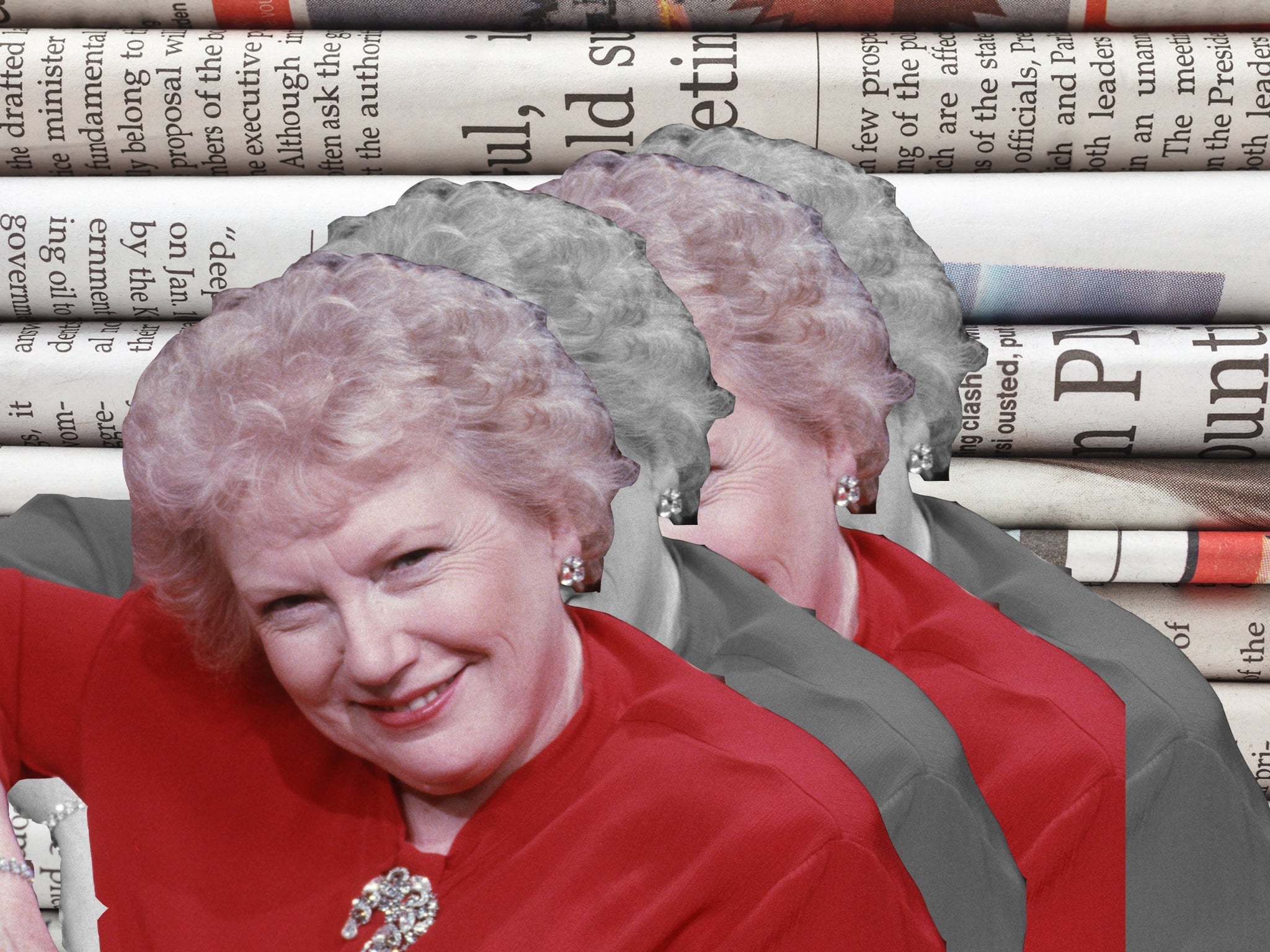
Dear Virginia
I have a confession to make, and I feel you’re the only person I can turn to: I’ve always been hooked on problem pages, written by agony aunts like yourself. I’ve always loved reading those heartfelt letters from your readers – they echoed so many of my own dilemmas. What a relief to know I wasn’t the only one who worried about sex and romance, or got caught up in family feuds! Your advice was always so sensible and reassuring. It was great to know there wasn’t something wrong with me, to know I wasn’t alone.
When the internet came along I thought your column would dry up, and all the other columns like it. After all, why bother writing to a newspaper, when the answer to any question is just a computer click away? Yet problem pages like yours have never been more popular. They’ve spread from women’s magazines and tabloid newspapers to posher papers like The Guardian and The Times.
So why do people still feel compelled to share their most intimate secrets with folk like you? Why do so many people still turn to agony aunts, even in our brave new virtual world? Time was, some people had nowhere else to go for sex education or marriage guidance, but thankfully those days are long gone. So what do agony aunts like you do that Google can’t do?
Name and address supplied
That’s the letter I would have written to my favourite agony aunt, Virginia Ironside, if I hadn’t already met her, through The Oldie, for whom we both write nowadays. Talking to her there, it struck me that we know relatively little about these wise women of the national press. How did they get started in this line of work? How do they feel about the job they do? What are the ups and downs?
Agony aunts (and uncles) have been around ever since the advent of newspapers, and they’ve always been very popular. The first problem page appeared way back in the 17th century, in a journal called The Athenian Mercury. During the 19th century The Englishwoman’s Domestic Magazine became notorious for the steamy letters on its problem page.
The big boom came after the Second World War with the explosion of women’s magazines. Woman’s Own introduced its first agony aunt in 1945. In the 1950s and 1960s, the Daily Mirror’s Marjorie Proops became a national treasure, followed in the 1970s by Claire Rayner on The Sun. Sophisticated young women wrote to Irma Kurtz on Cosmopolitan. Teenage girls wrote to Cathy and Claire at Jackie magazine. Today their grown-up offspring are writing to Mariella Frostrup on The Observer, Zelda West-Meads at You magazine and Professor Tanya Byron on The Times. As Philippa Perry observed in her recent BBC documentary: “The best agony aunts offer something that Google can’t – a relationship.”
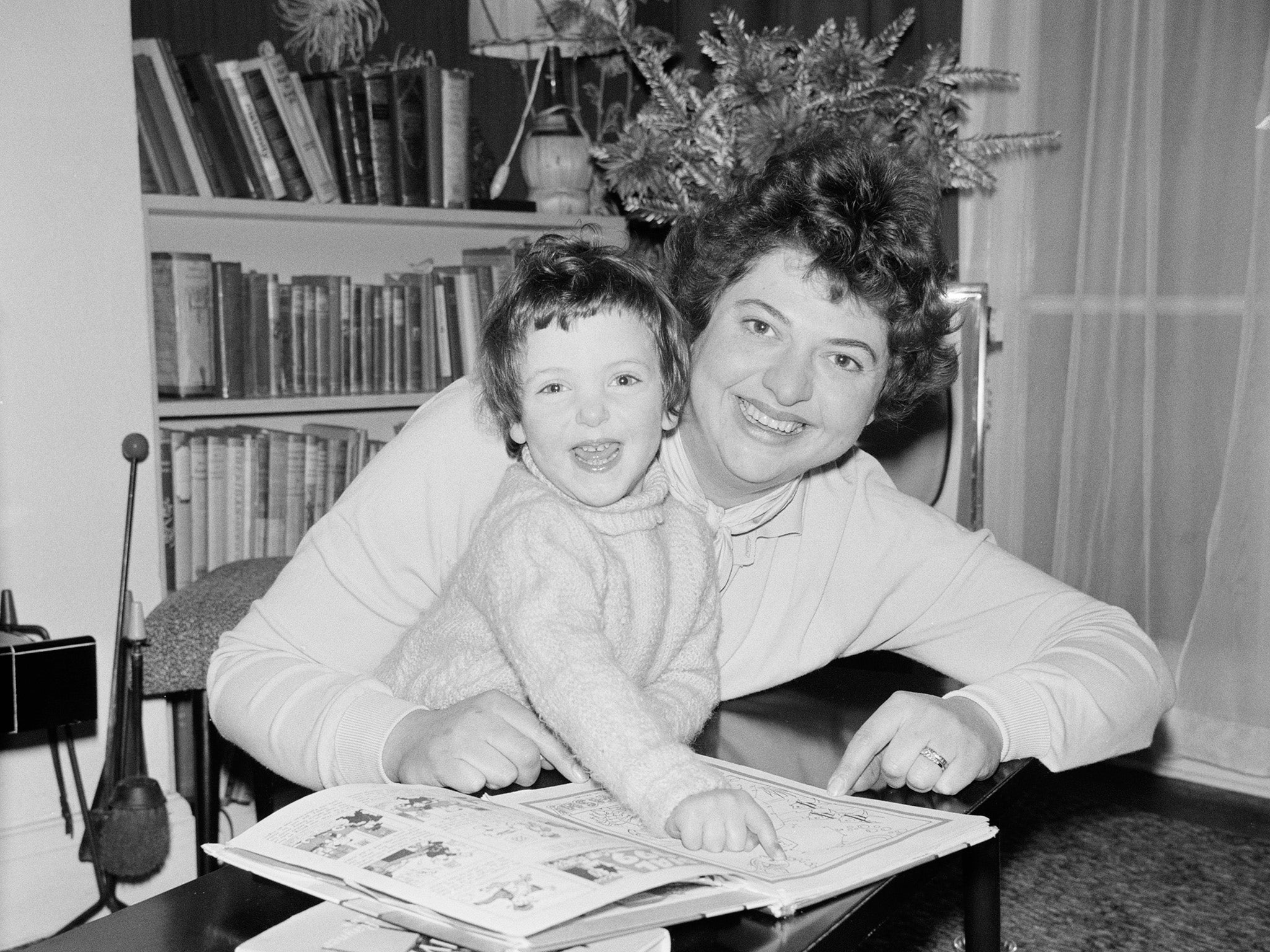
I wanted to find out more about this relationship, and so I visited Virginia Ironside, and two other problem-page columnists, Bel Mooney (of the Daily Mail) and Deidre Sanders (Dear Deidre in The Sun) whose work I’ve always admired. I wanted to ask them what it was like doing one of the strangest (and most responsible) jobs in journalism – advising complete strangers about the most personal aspects of their lives.
Virginia Ironside lives alone in a handsome townhouse in west London. An only child, she has a grown-up only child of her own. Her home is full of wonderful paintings, many of them by her father and her uncle, who were both talented, successful artists. She’s written loads of books, from novels to memoirs. She was the Daily Mail’s rock columnist for a while, but it was as an agony aunt that she became best known, for Woman magazine, The Sunday Mirror, The Independent and now The Oldie. So why are problem pages in newspapers and magazines so popular, I ask her, in an age when you can find almost anything you want online?
“People want to have that real contact with one other, rather than a group,” she says over a cup of coffee in her sunlit conservatory. “Also, they want the attention of somebody with their picture in the paper, so it’s very parental. You’re writing as a child to a parent, actually, and if you get a reply it means much more than if Joe Bloggs from Hastings writes back.”
And then there’s the attraction to the readers – the pleasure of reading a hopeful response to a troubled story. Ironside likens it to listening to music, hearing minor cadences resolving into major ones. “That’s always a very emotionally satisfying thing to read,” she says. “It makes people feel good to read of pain, then comfort – rather than the other way around.”
I’d always thought writing to a stranger was a sign of isolation, an admission that the writer lacked a real aunt (or uncle) to confide in. However, Ironside thinks this distance can be helpful. After all, as she reminds me, a real aunt would be the sister of one of your parents – not ideal.
As she says, one of the things her correspondents like is that she won’t tell on them. However, she has “told” a couple of times. Once, a woman wrote in to say her husband was being violent towards their son. She said what school he went to, so Ironside alerted the headmaster. Another time, a woman who was on probation for arson wrote in to say she was worried she might be about to commit arson again. Ironside altered the probation office – and it all ended happily. The woman was distressed by the departure of her nice probation officer. She subsequently wrote to Ironside to say her new probation officer was even nicer than the old one. On both occasions Ironside asked the authorities to keep her intervention a secret, and they did.
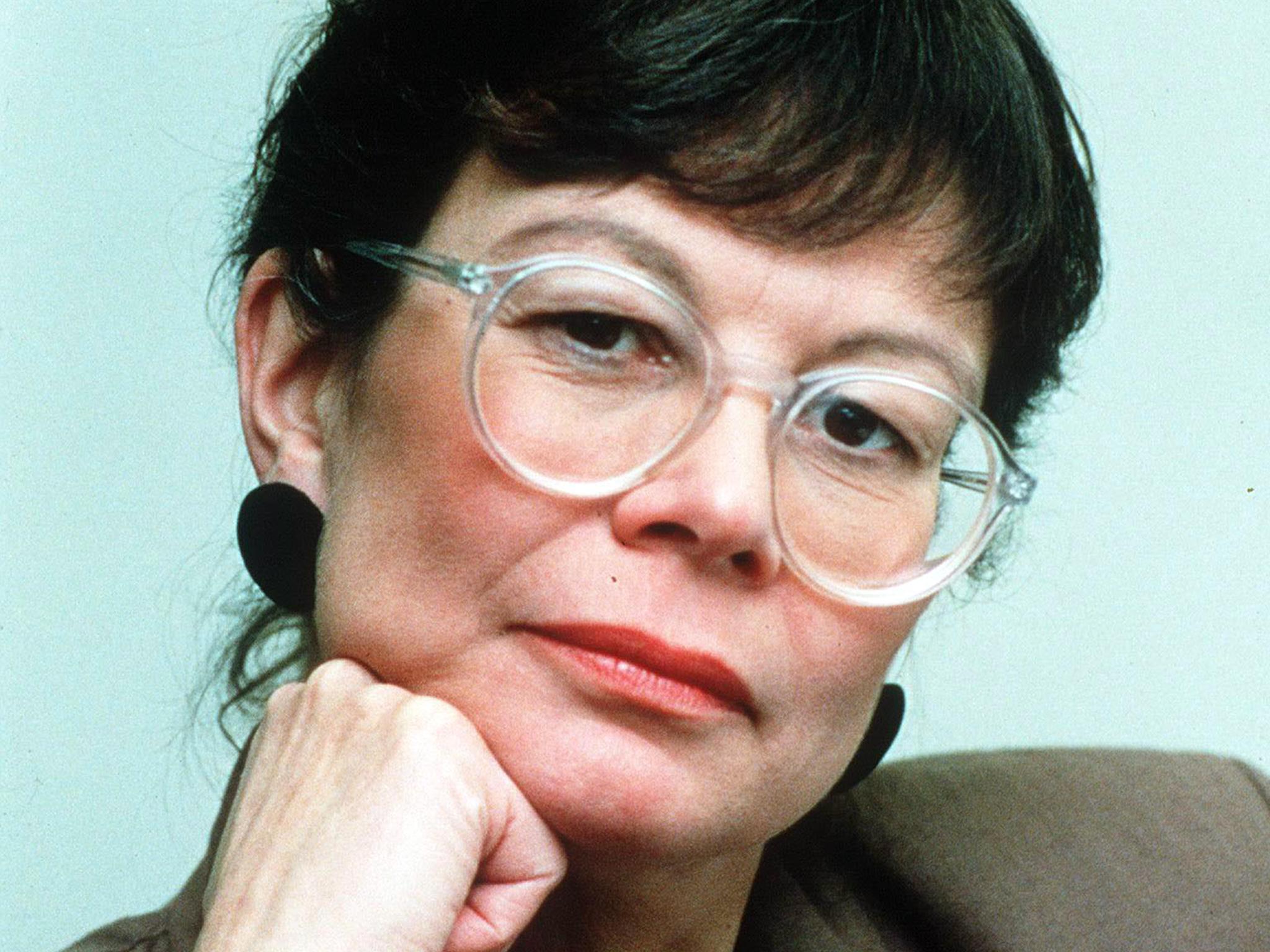
The letters in the paper are merely the tip of the iceberg. Only a small selection are published. Occasionally Ironside corresponds with people for quite a while. Sometimes she’ll write a shorter, punchier reply for publication, and then a longer, more nuanced letter to the individual concerned.
Has she had any hairy moments? “Getting into correspondence with maniacs,” she says. “They sound so attractive, the maniacs.” One man wrote to her from South Africa and subsequently turned up at her office. “I said to my secretary, ‘If I’m not back in two minutes, call the police.’ There was something very odd about him.” That was the last she heard of him, until she saw a newspaper headline a few years later. “I was wrapping up some china and there he was: ‘Laughing Maniac Sent to Broadmoor.’” She says this with a hearty chuckle, but it must have been pretty scary at the time.
In a way, she’s been an agony aunt all her life. “My mother was a very successful woman, but also an alcoholic – very depressed – so I’ve been a kind of carer, in a way, emotionally, since I was about eight.” Ironside’s mother was a professor at the Royal College of Art, but her domestic life was a different matter. “She just didn’t know how to be a mum. She was a damaged child.” For Ironside, helping people became a habit. “If I was helping people I felt that I was at home in some way. I knew how to do it. I like looking after people. It makes me feel good about myself. It makes me feel secure.”
As a child, she had to become emotionally intuitive in order to survive, yet her adult life wasn’t plain sailing. “I became very, very depressed – nightmare breakdowns,” she recalls. One suspects that for an agony aunt, such an ordeal is actually no bad thing. “I need advice, too. I ring up friends in tears all the time and say, ‘What shall I do?’ We all do.”
By the time she got her first paid gig, she’d already been doing it for free for ages. “I was a freelance journalist, a single parent, and I went to lunch with a features editor on Woman magazine, pitching her some ideas. I was working in a shop on Saturdays – the house was stuffed with lodgers.” She needed a steady job. The editor told her their longstanding agony aunt, Anna Raeburn, was leaving. “What a lovely job!” exclaimed Ironside. “Why don’t you apply for it?” said her editor. So she did. She was right. It was a lovely job. “I found it deeply fulfilling,” she says. “It was a way of being loved.”
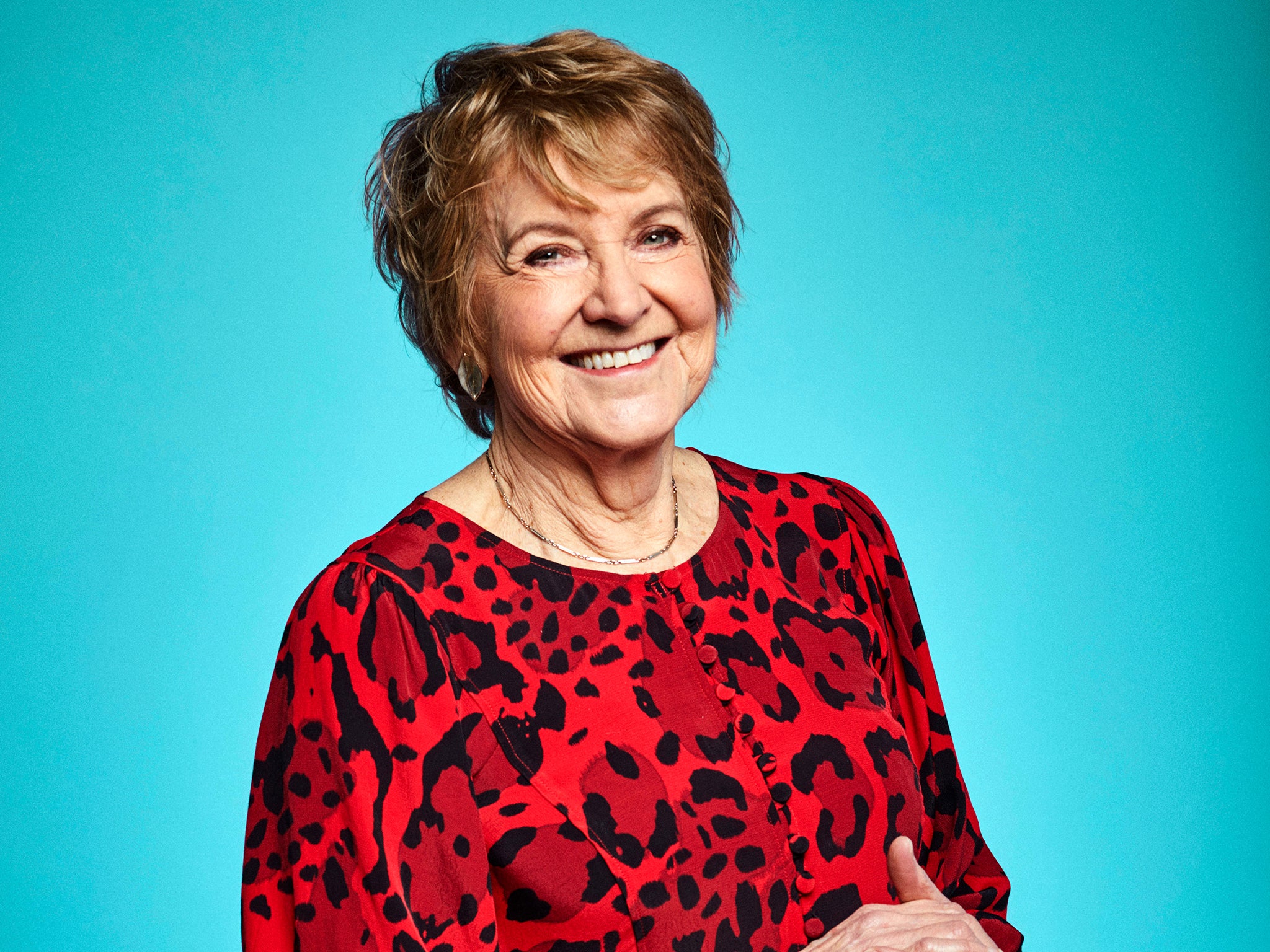
It made her realise how lonely we all are (“You can’t get that number of letters without thinking there’s a core of loss and unhappiness at the heart of all of us”) but, having suffered from depression, this insight gave her some comfort. When you’re down, it’s easy to assume everyone else is having a great time. “It’s rather wonderful to know they’re not,” she says. Before she became an agony aunt she was very depressed. You could say it’s cheered her up. “When you have a starving, freezing man on your doorstep, you give him a meal and you put the fire on. You share that meal and you get the heat from that fire.”
And after all these years she has no doubt that the service she provides is useful. “It’s not just the advice – it’s the giving of it. Just getting a letter back is an incredibly healing thing. That’s why I hate these agony aunts who don’t reply, because all they have to do is say, ‘Poor old you, what a ghastly time you’re having, I’ve heard you, love from Virginia.’ A letter is a real act of love.”
She recalls how she once wrote a long letter full of complicated analysis to a woman who was in great distress, then finished with a few words of simple encouragement and praise. When the woman wrote back she made no reference to the analysis, but she said Ironside’s praise and encouragement had meant the world to her. For Ironside this was an education, something she remembered forever more. “I thought, ‘Now stop being such a smartarse, Ironside – just lay on the affection.’ That’s really what people want.”
I thought, ‘Now stop being such a smartarse, Ironside – just lay on the affection.’ That’s really what people want
Bel Mooney lives in a lovely old farmhouse in the west country with her second husband, photographer Robin Allison-Smith. The house is full of books and beautiful works of art. There’s a Wurlitzer jukebox in the corner. She raised a family with her first husband, Jonathan Dimbleby, whom she met at university. She’s been a journalist for half a century, writing for everyone from Nova to the New Statesman, the Daily Mirror to The Guardian. She’s written lots of books, fiction and non-fiction. She’s always been someone people felt comfortable confiding in, yet she became a personal advice columnist (she dislikes the term agony aunt) quite by chance.
“After my first marriage broke up, after 35 years, I was in rather a state and I needed to earn money,” she tells me over coffee in her cosy library. “I’d moved house and had my card eaten by the bank.” She got in touch with a few editors, and ended up meeting an editor from The Times. Over lunch the editor was talking about the challenges of being a working mother. Mooney ended up giving her advice. “Listen to me – I’m an agony aunt manqué!” said Bel. She saw the bulb light up above her editor’s head.
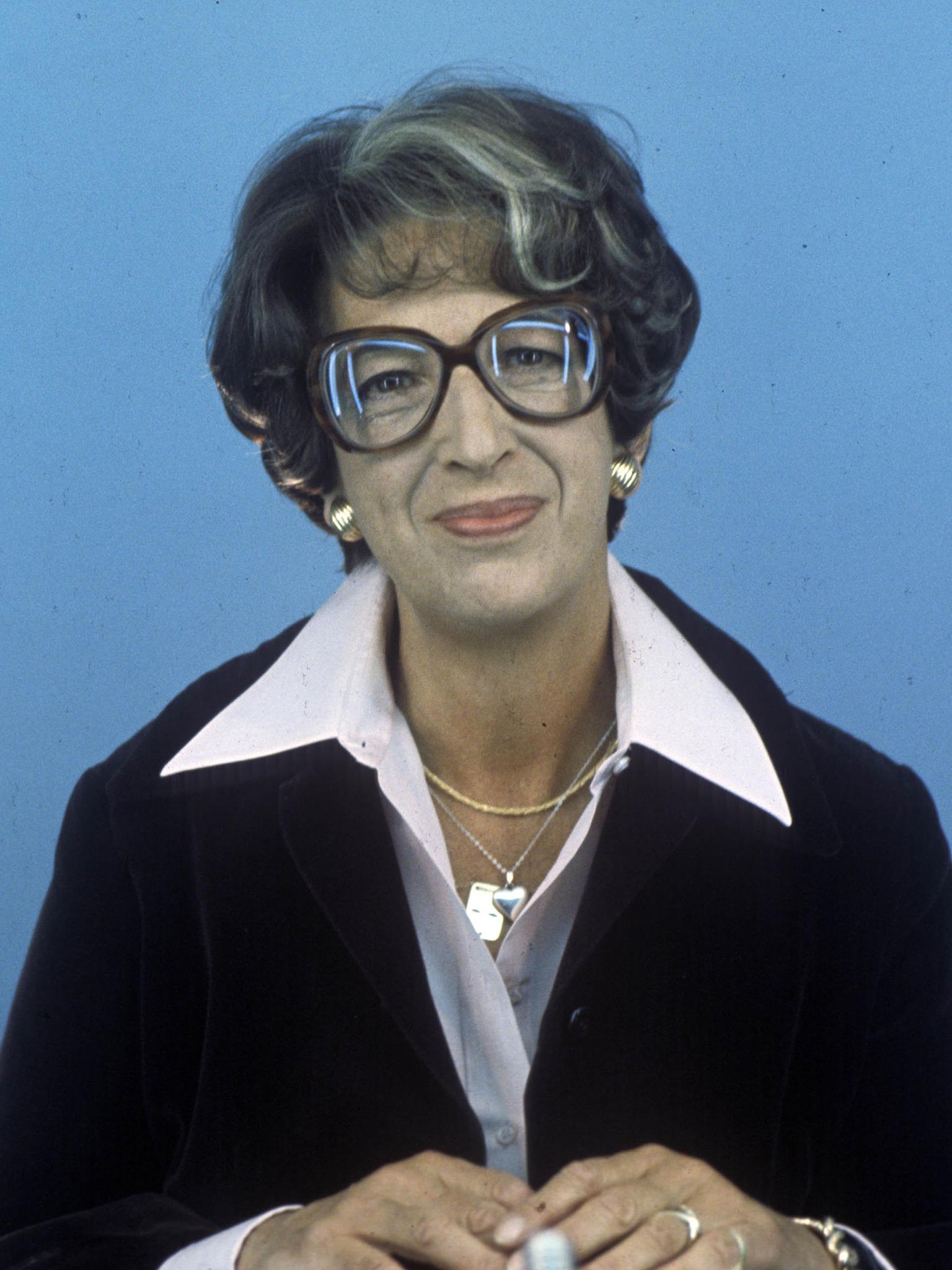
It was a job she’d never even thought about, so she needed some persuading, but colleagues told her she’d be great at it. “I’ve had such a lot of pain in my life,” she thought to herself. “Let’s give it a go.” Her second son was stillborn and her daughter was born with a bowel defect, a club foot and a mild form of spina bifida. Her parents are 97 and 94. Her father has dementia. “I have lived the life that many of my readers have,” she says. “I was brought up in a council flat in Liverpool. I’m not posh.” Mooney believes (as I do) that a certain amount of suffering helps her to empathise with her readers. “If you have never suffered, how can you walk in their shoes?”
It was a new departure for The Times too, but the column soon took off. After two years she was poached the Daily Mail. She’s been there ever since. She’s built up a devoted band of readers. “They say, ‘I feel so much better having told you, knowing you’re going to read it.’” They think of her as a friend. Some of them send her presents. She’s turned the page into a community – an ongoing dialogue with her readers. She talks about her problems, too. Often people write in to big her up, rather than sharing their tales of woe. “I’m communicating with these people, and they’re communicating right back to me.”
She says she loves her readers. “How stupid – I’ve never met them. But I do, and I can’t explain why, except that I was brought up in a particular environment that was warm and noisy and quarrelsome and Liverpudlian.” That seeps into the column. She writes from the heart. “It’s important to give of yourself, to say, ‘Believe me – I know what this is like.’”
But the sense of separation matters too. It’s like a message in a bottle. “You’re unburdening yourself to a stranger, like people sometimes do on a train,” she says. And then there are all the other people listening in – readers who never write in, but still see their own lives echoed in the column. “If you read the page you will see letters to other people that resonate with you.”
The column is on the website too, but there are no comments beneath it. People used to be able to post comments, but some were unpleasant about her correspondents, so she asked the editor to block them. “They’re writing to me,” she told him. “They don’t want to have every Tom, Dick and Harriet saying, ‘Oh you silly thing, pull yourself together.’”
She doesn’t mind being in the firing line, but she doesn’t think her readers should have to put up with the same sort of abuse. “They can say anything about me, but they can’t say what they like about them.”
Like Ironside, Mooney sometimes ends up in private correspondence with her readers. A 17-year-old boy wrote to her. He was worried about his sexuality. “I did run his letter, but I then became a sort of mentor to him by email until he went to university.”
She takes the column very seriously. “At the moment I’m not doing anything else,” she says. “It rather consumes me.” For the past few weeks she’s been worrying about a letter she’s received about race and Brexit, wondering whether to publish it. “It’s a can of worms.”
It sounds like a big responsibility. Does she ever find it overwhelming? “I have done, yes.”
Recently she gave a talk and a woman in the audience asked her, “Who do you go to for help?” ”Nobody,” said Mooney. But it’s worth it. “I know for a fact that I have stopped somebody from suicide and have saved marriages, and I know this because they’ve written and told me about these problems.”
And the happy endings make it all worthwhile. “The youngest letter I’ve ever printed was from an 11 year-old child whose parents were fighting, dad had lost his job,” recalls Mooney. “I ran her letter. I said, ‘You mustn’t think it’s your fault.’ I wrote to her very kindly.” That was 10 years ago. “She emailed me the other day. She’s now 21, she writes for the BBC, she’s a poet.” She wrote to say she cherished the memory of the kindness Mooney showed her, when she plucked up the courage to write that letter to a stranger.
Yet she never would have ended up in this job if she hadn’t got divorced. “If I was to say, ‘Would you trade this job for the marriage?’ My answer would probably be no, because it’s been so fantastic. It’s given me so much.”
If I was to say, ‘Would you trade this job for the marriage?’ My answer would probably be no, because it’s been so fantastic. It’s given me so much
Deidre Sanders compiles her problem page in an office in the home counties, supported by a team of dedicated assistants. It’s a unique service. Several hundred letters arrive each day. The most urgent ones (violence, problem pregnancies, potential child abuse or suicide) are answered the same day by one of her trained counsellors. They often send follow-up letters too. As she says to me: “We will keep trying to show them that we care.”
As well as a personal reply, most people who write in also receive one of her special leaflets. She’s written hundreds over the years, covering every problem you can think of. Since she became an agony aunt in 1980 she’s sent out hundreds of thousands of these leaflets. Nearly 7 million people have contacted her. Sometimes she’s had a letter from a wife and a letter from the husband. Sometimes, she’s published both letters, side by side.
“You can go and google ‘My wife’s cheated on me’, but how do you evaluate the information?” she tells me. “Most people feel very unsure. They don’t know who to trust. They don’t know which advice you can rely on. We do give very extensive replies here. I can actually point them at the charities or counselling, or whatever service they need, and talk to them as individual people.” Everyone who writes in gets an individual reply.
“I’ve always been really interested in what makes people tick. Why do some relationships work, and other people’s relationships not work? Why are some people resilient in the face of crisis? Why are other people not resilient? Why do some people seem to have such trouble raising their children, and other people seem to be quite happy, sunny families?” As a journalist, Sanders was always interested in these questions. When she became an agony aunt, initially for the Daily Star, she did a lot of counselling training.
Sanders believes this training was absolutely vital. Her personal replies follow a classic counselling model: making people feel heard and understood, then trying to help them to identify the things that are blocking their progress, and the steps forward they can take. “Personally, I don’t think it is something you can just do using common sense.” She’s always careful to disguise her correspondents’ identity. “If you’ve written to me, your next-door neighbour won’t recognise your problem in my column.”
She grew up in suburban Harrow, John Betjeman’s Metroland. Her parents were both teachers – her dad was a headmaster. Like Virginia Ironside, Sanders was an only child. “Both my parents had problems with alcohol,” she says. “That was a real motivating factor for me. I am very conscious of what it’s like to grow up as a child in a troubled home. In those days everything was kept behind the net curtains. There was nowhere as a child where you could go to and find any understanding or support.”
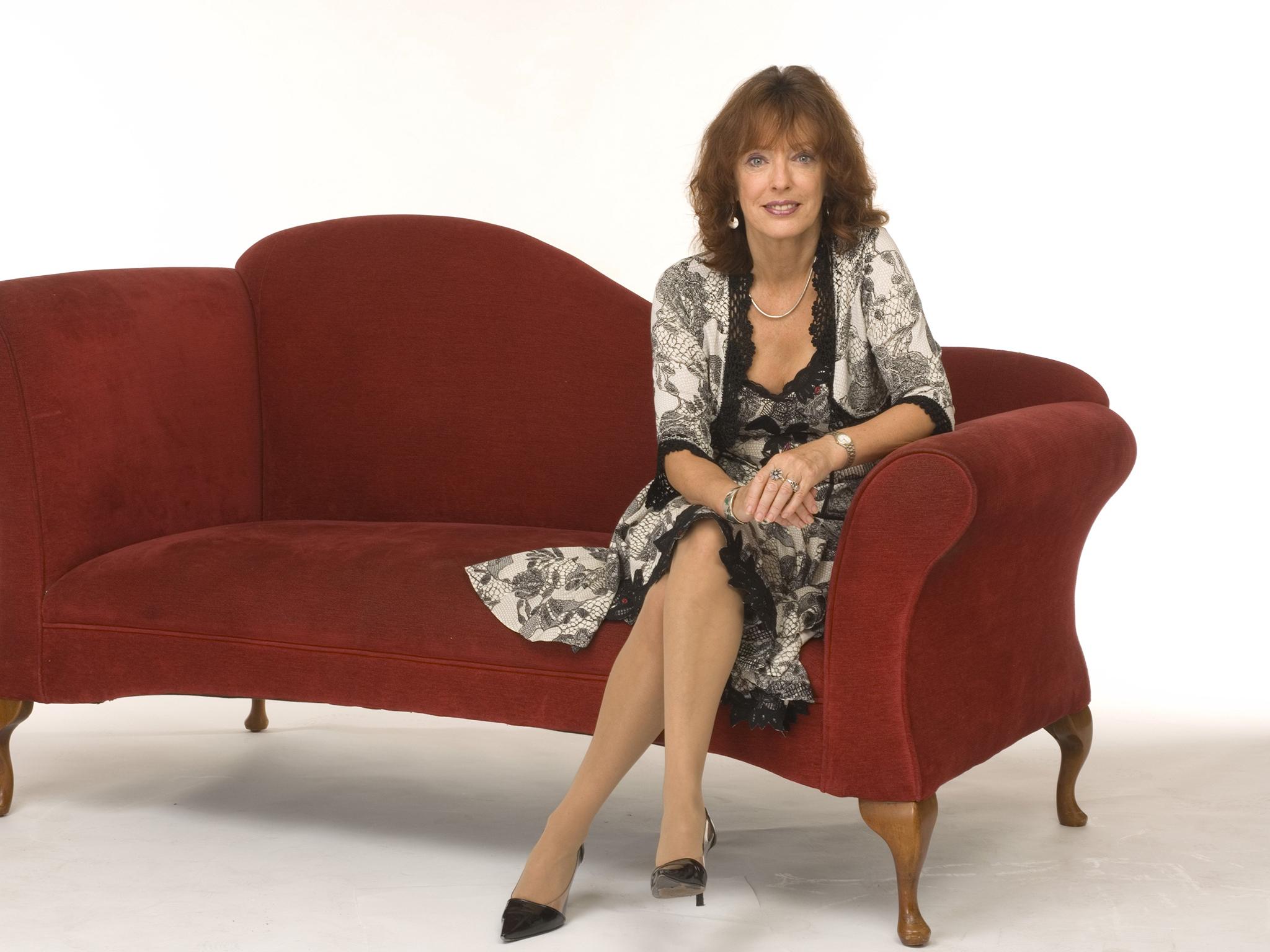
She always wanted to be a journalist. As a child she made her own newspapers, with all the elements of a grown-up paper, including a problem page. At Sheffield University she edited the student paper and then went straight into journalism. She worked at all sorts of mags and papers, from The Sunday Times to Woman’s Own. She’s worked for every editor of The Sun.
So what’s changed? “The internet has made a massive difference,” she says. “If people are running into problems in their marriage, or their relationship, it’s so easy to go off into flirting online, getting into sexual chat with somebody or going on a dating site. Whereas before men might have retreated to the garden shed and women might have sat in the sitting room and sulked, people go off online now, and it’s so damaging.” One of the most damaging aspects, she says, is internet porn. “I’ve had a child as young as 11 writing to me about his online pornography addiction.”
The internet has spread her column way beyond the UK. “I hear from people all around the globe,” she says. “It is extraordinary, the range of people we’re hearing from – everywhere you can think of.” Even in the UK, the population is now much more multicultural. In the old days, British people used to write in with basic questions about sex education. Now she gets the same questions, from non-western readers, both here and overseas. Like any good journalist, she welcomes this new challenge. “It’s absolutely fascinating,” she says.
What problems are most prevalent? “There’s a lot about cheating and jealousy. I get a lot to do with generational problems.” The details may have changed (people finding things on one another’s mobile phones) but the central themes are eternal. “I think human behaviour evolves very slowly, actually. Yes, something like the internet comes along and it’s making everything judder while we sort out how we’re going to deal with it, but the fundamental problems of growing up, feeling safe, meeting a partner – they don’t change.
“People often say, ‘What’s shocked you?’” They think I’m going to say something sexual, and it’s not. What shocks me is how utterly cruel some people are to one another within families. They say the most horrendous things and behave in the most cruel way, but I don’t think that’s changed.” Her column tries to counter this. “I hope it’s flagging up values like compassion.”
The job has not been without its perils. “I have had a stalker who ended up in Broadmoor – he threatened to kill me and my children,” she reveals. “It was very frightening, especially when he was threatening the children, obviously. My husband was extremely upset.”
She has weathered these ordeals because her column is important. It shows people that it’s normal to have problems, and seek help. ”You want to talk to someone who isn’t going to be shocked – you want to talk to someone who’s not going to be emotionally involved,” she says.
Her column is a secure, familiar place for people who often can’t afford counselling. “Normally they write to me because they want a non-judgemental viewpoint.” She’s changed countless lives for the better, and saved more lives than she’ll ever know.
Amid the heartache, there are some happy endings. At the end of every year she publishes a thank-you page of readers’ letters. “Because I’ve been doing it so long, I’ve had generations of families writing to me,” she says. “People can change, and you get some lovely, really happy stories.” Despite the sadness and cruelty she’s encountered, she remains optimistic. “Among young people, I think attitudes are kinder and more understanding, and more generous.” And agony aunts like her have helped to bring that about.
Join our commenting forum
Join thought-provoking conversations, follow other Independent readers and see their replies
Comments